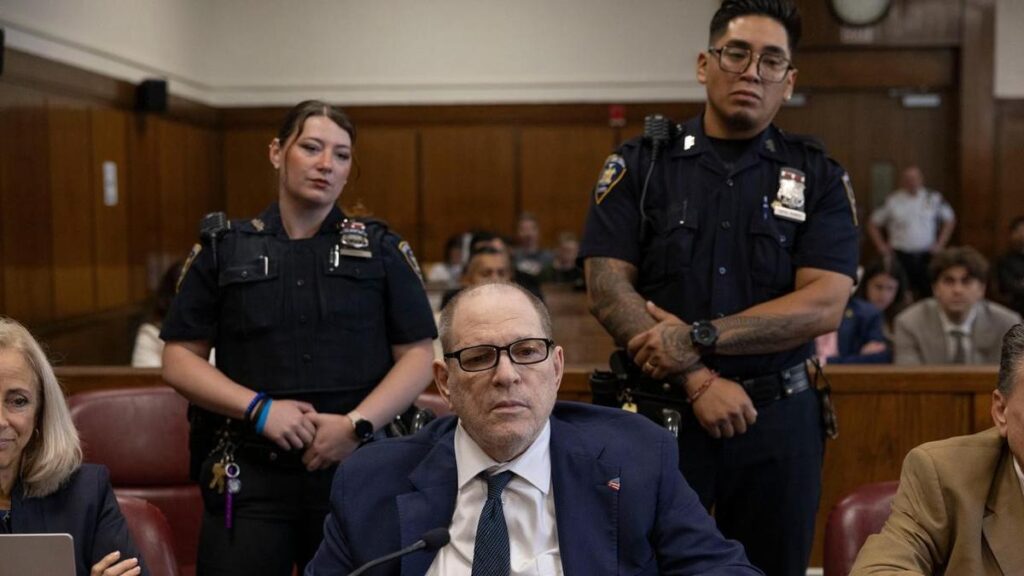
UPDATE: Two jurors who convicted Harvey Weinstein of sexual assault are now speaking out, claiming they were bullied into their decision. This shocking revelation comes as Weinstein’s legal team seeks to overturn his June conviction for a first-degree criminal sex act, citing “threats, intimidation, and extraneous bias” that tainted the jury’s verdict.
In sworn affidavits included in court documents, the jurors described a hostile environment during deliberations, feeling overwhelmed by pressure to convict. One juror stated, “I was screamed at in the jury room and told, ‘we have to get rid of you.'” Another revealed that if he had the option of voting secretly, he would have returned a not guilty verdict on all charges.
The allegations center around the case involving Miriam Haley, who accused Weinstein of forcing oral sex on her in 2006. The jurors believe that intimidation shifted their deliberations from a balanced 6-6 split to a rapid unanimous verdict against Weinstein. “I regret the verdict,” one juror said, emphasizing that without the bullying, they believe the jury would have been unable to reach a decision.
Weinstein, aged 73, was previously acquitted of a second criminal sex act charge involving former model Kaja Sokola and faced a mistrial on another charge related to Jessica Mann, a former actor. He has been incarcerated since his initial conviction in 2020, a pivotal moment for the Me Too movement, which was overturned in 2024.
Weinstein’s defense attorney, Arthur Aidala, is now fighting to eliminate the retrial conviction and prevent another on the unresolved charge. The judge, Curtis Farber, has given Manhattan prosecutors until November 10 to conduct their own investigation and respond in writing before making a ruling on December 22.
The jurors expressed fears for their safety, recounting incidents where they felt threatened. One juror noted that during discussions about civility, another juror aggressively challenged the foreperson, declaring, “You don’t know me. I’ll catch you outside.” This atmosphere of intimidation allegedly led some jurors to believe that one panel member may have been compromised, a claim lacking evidence but influential in their deliberation process.
The implications of these revelations are significant. The first-degree criminal sex act conviction carries a potential sentence of up to 25 years in prison, while the unresolved third-degree rape charge could add up to four years. Weinstein has already served considerable time behind bars, including a separate sentence related to a California case, which he is appealing.
As this story develops, the legal ramifications of the jurors’ claims could lead to a major shift in Weinstein’s ongoing battle against sexual assault charges. The possibility of a retrial looms, with many watching closely as the next court dates approach.
This emerging situation highlights not only the complexities of the legal system but also the profound impact on those involved, sparking discussions about justice, accountability, and the challenges of navigating high-profile cases. Stay tuned for further updates as this story unfolds.






